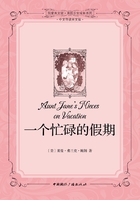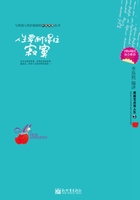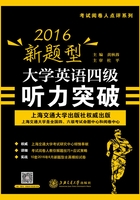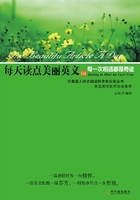O Lord, I am Thy servant; I am Thy servant, and the son of Thy handmaid: Thou hast broken my bonds in sunder. I will offer to Thee the sacrifice of praise. Let my heart and my tongue praise Thee; yea, let all my bones say, O Lord, who is like unto Thee? Let them say, and answer Thou me, and say unto my soul, I am thy salvation. Who am I, and what am I? What evil have not been either my deeds, or if not my deeds, my words, or if not my words, my will? But Thou, O Lord, are good and merciful, and Thy right hand had respect unto the depth of my death, and from the bottom of my heart emptied that abyss of corruption. And this Thy whole gift was, to nill what I willed, and to will what Thou willedst. But where through all those years, and out of what low and deep recess was my free-will called forth in a moment, whereby to submit my neck to Thy easy yoke, and my shoulders unto Thy light burden, O Christ Jesus, my Helper and my Redeemer? How sweet did it at once become to me, to want the sweetnesses of those toys! and what I feared to be parted from, was now a joy to part with. For Thou didst cast them forth from me, Thou true and highest sweetness. Thou castest them forth, and for them enteredst in Thyself, sweeter than all pleasure, though not to flesh and blood; brighter than all light, but more hidden than all depths, higher than all honour, but not to the high in their own conceits. Now was my soul free from the biting cares of canvassing and getting, and weltering in filth, and scratching off the itch of lust. And my infant tongue spake freely to Thee, my brightness, and my riches, and my health, the Lord my God.
And I resolved in Thy sight, not tumultuously to tear, but gently to withdraw, the service of my tongue from the marts of lip-labour: that the young, no students in Thy law, nor in Thy peace, but in lying dotages and law-skirmishes, should no longer buy at my mouth arms for their madness. And very seasonably, it now wanted but very few days unto the Vacation of the Vintage, and I resolved to endure them, then in a regular way to take my leave, and having been purchased by Thee, no more to return for sale. Our purpose then was known to Thee; but to men, other than our own friends, was it not known. For we had agreed among ourselves not to let it out abroad to any: although to us, now ascending from the valley of tears, and singing that song of degrees, Thou hadst given sharp arrows, and destroying coals against the subtle tongue, which as though advising for us, would thwart, and would out of love devour us, as it doth its meat.
Thou hadst pierced our hearts with Thy charity, and we carried Thy words as it were fixed in our entrails: and the examples of Thy servants, whom for black Thou hadst made bright, and for dead, alive, being piled together in the receptacle of our thoughts, kindled and burned up that our heavy torpor, that we should not sink down to the abyss; and they fired us so vehemently, that all the blasts of subtle tongues from gainsayers might only inflame us the more fiercely, not extinguish us. Nevertheless, because for Thy Name's sake which Thou hast hallowed throughout the earth, this our vow and purpose might also find some to commend it, it seemed like ostentation not to wait for the vacation now so near, but to quit beforehand a public profession, which was before the eyes of all; so that all looking on this act of mine, and observing how near was the time of vintage which I wished to anticipate, would talk much of me, as if I had desired to appear some great one. And what end had it served me, that people should repute and dispute upon my purpose, and that our good should be evil spoken of.
Moreover, it had at first troubled me that in this very summer my lungs began to give way, amid too great literary labour, and to breathe deeply with difficulty, and by the pain in my chest to show that they were injured, and to refuse any full or lengthened speaking; this had troubled me, for it almost constrained me of necessity to lay down that burden of teaching, or, if I could be cured and recover, at least to intermit it. But when the full wish for leisure, that I might see how that Thou art the Lord, arose, and was fixed, in me; my God, Thou knowest, I began even to rejoice that I had this secondary, and that no feigned, excuse, which might something moderate the offence taken by those who, for their sons' sake, wished me never to have the freedom of Thy sons. Full then of such joy, I endured till that interval of time were run; it may have been some twenty days, yet they were endured manfully; endured, for the covetousness which aforetime bore a part of this heavy business, had left me, and I remained alone, and had been overwhelmed, had not patience taken its place. Perchance, some of Thy servants, my brethren, may say that I sinned in this, that with a heart fully set on Thy service, I suffered myself to sit even one hour in the chair of lies. Nor would I be contentious. But hast not Thou, O most merciful Lord, pardoned and remitted this sin also, with my other most horrible and deadly sins, in the holy water?
Verecundus was worn down with care about this our blessedness, for that being held back by bonds, whereby he was most straitly bound, he saw that he should be severed from us. For himself was not yet a Christian, his wife one of the faithful; and yet hereby, more rigidly than by any other chain, was he let and hindered from the journey which we had now essayed. For he would not, he said, be a Christian on any other terms than on those he could not. However, he offered us courteously to remain at his country-house so long as we should stay there. Thou, O Lord, shalt reward him in the resurrection of the just, seeing Thou hast already given him the lot of the righteous. For although, in our absence, being now at Rome, he was seized with bodily sickness, and therein being made a Christian, and one of the faithful, he departed this life; yet hadst Thou mercy not on him only, but on us also: lest remembering the exceeding kindness of our friend towards us, yet unable to number him among Thy flock, we should be agonised with intolerable sorrow. Thanks unto Thee, our God, we are Thine: Thy suggestions and consolations tell us, Faithful in promises, Thou now requitest Verecundus for his country-house of Cassiacum, where from the fever of the world we reposed in Thee, with the eternal freshness of Thy Paradise: for that Thou hast forgiven him his sins upon earth, in that rich mountain, that mountain which yieldeth milk, Thine own mountain.
He then had at that time sorrow, but Nebridius joy. For although he also, not being yet a Christian, had fallen into the pit of that most pernicious error, believing the flesh of Thy Son to be a phantom: yet emerging thence, he believed as we did; not as yet endued with any Sacraments of Thy Church, but a most ardent searcher out of truth. Whom, not long after our conversion and regeneration by Thy Baptism, being also a faithful member of the Church Catholic, and serving Thee in perfect chastity and continence amongst his people in Africa, his whole house having through him first been made Christian, didst Thou release from the flesh; and now he lives in Abraham's bosom. Whatever that be, which is signified by that bosom, there lives my Nebridius, my sweet friend, and Thy child, O Lord, adopted of a freed man: there he liveth. For what other place is there for such a soul? There he liveth, whereof he asked much of me, a poor inexperienced man. Now lays he not his ear to my mouth, but his spiritual mouth unto Thy fountain, and drinketh as much as he can receive, wisdom in proportion to his thirst, endlessly happy. Nor do I think that he is so inebriated therewith, as to forget me; seeing Thou, Lord, Whom he drinketh, art mindful of us. So were we then, comforting Verecundus, who sorrowed, as far as friendship permitted, that our conversion was of such sort; and exhorting him to become faithful, according to his measure, namely, of a married estate; and awaiting Nebridius to follow us, which, being so near, he was all but doing: and so, lo! those days rolled by at length; for long and many they seemed, for the love I bare to the easeful liberty, that I might sing to Thee, from my inmost marrow, My heart hath said unto Thee, I have sought Thy face: Thy face, Lord, will I seek.
Now was the day come wherein I was in deed to be freed of my Rhetoric Professorship, whereof in thought I was already freed. And it was done. Thou didst rescue my tongue, whence Thou hadst before rescued my heart. And I blessed Thee, rejoicing; retiring with all mine to the villa. What I there did in writing, which was now enlisted in Thy service, though still, in this breathing-time as it were, panting from the school of pride, my books may witness, as well what I debated with others, as what with myself alone, before Thee: what with Nebridius, who was absent, my Epistles bear witness. And when shall I have time to rehearse all Thy great benefits towards us at that time, especially when hasting on to yet greater mercies? For my remembrance recalls me, and pleasant is it to me, O Lord, to confess to Thee, by what inward goads Thou tamedst me; and how Thou hast evened me, lowering the mountains and hills of my high imaginations, straightening my crookedness, and smoothing my rough ways; and how Thou also subduedst the brother of my heart, Alypius, unto the name of Thy Only Begotten, our Lord and Saviour Jesus Christ, which he would not at first vouchsafe to have inserted in our writings. For rather would he have them savour of the lofty cedars of the Schools, which the Lord hath now broken down, than of the wholesome herbs of the Church, the antidote against serpents.
Oh, in what accents spake I unto Thee, my God, when I read the Psalms of David, those faithful songs, and sounds of devotion, which allow of no swelling spirit, as yet a Catechumen, and a novice in Thy real love, resting in that villa, with Alypius a Catechumen, my mother cleaving to us, in female garb with masculine faith, with the tranquillity of age, motherly love, Christian piety! Oh, what accents did I utter unto Thee in those Psalms, and how was I by them kindled towards Thee, and on fire to rehearse them, if possible, through the whole world, against the pride of mankind! And yet they are sung through the whole world, nor can any hide himself from Thy heat. With what vehement and bitter sorrow was I angered at the Manichees! and again I pitied them, for they knew not those Sacraments, those medicines, and were mad against the antidote which might have recovered them of their madness. How I would they had then been somewhere near me, and without my knowing that they were there, could have beheld my countenance, and heard my words, when I read the fourth Psalm in that time of my rest, and how that Psalm wrought upon me: When I called, the God of my righteousness heard me; in tribulation Thou enlargedst me. Have mercy upon me, O Lord, and hear my prayer. Would that what I uttered on these words, they could hear, without my knowing whether they heard, lest they should think I spake it for their sakes! Because in truth neither should I speak the same things, nor in the same way, if I perceived that they heard and saw me; nor if I spake them would they so receive them, as when I spake by and for myself before Thee, out of the natural feelings of my soul.
I trembled for fear, and again kindled with hope, and with rejoicing in Thy mercy, O Father; and all issued forth both by mine eyes and voice, when Thy good Spirit turning unto us, said, O ye sons of men, how long slow of heart? why do ye love vanity, and seek after leasing? For I had loved vanity, and sought after leasing. And Thou, O Lord, hadst already magnified Thy Holy One, raising Him from the dead, and setting Him at Thy right hand, whence from on high He should send His promise, the Comforter, the Spirit of truth. And He had already sent Him, but I knew it not; He had sent Him, because He was now magnified, rising again from the dead, and ascending into heaven. For till then, the Spirit was not yet given, because Jesus was not yet glorified. And the prophet cries out, How long, slow of heart? why do ye love vanity, and seek after leasing? Know this, that the Lord hath magnified His Holy One. He cries out, How long? He cries out, Know this: and I so long, not knowing, loved vanity, and sought after leasing: and therefore I heard and trembled, because it was spoken unto such as I remembered myself to have been. For in those phantoms which I had held for truths, was there vanity and leasing; and I spake aloud many things earnestly and forcibly, in the bitterness of my remembrance. Which would they had heard, who yet love vanity and seek after leasing! They would perchance have been troubled, and have vomited it up; and Thou wouldest hear them when they cried unto Thee; for by a true death in the flesh did He die for us, who now intercedeth unto Thee for us.
I further read, Be angry, and sin not. And how was I moved, O my God, who had now learned to be angry at myself for things past, that I might not sin in time to come! Yea, to be justly angry; for that it was not another nature of a people of darkness which sinned for me, as they say who are not angry at themselves, and treasure up wrath against the day of wrath, and of the revelation of Thy just judgment. Nor were my good things now without, nor sought with the eyes of flesh in that earthly sun; for they that would have joy from without soon become vain, and waste themselves on the things seen and temporal, and in their famished thoughts do lick their very shadows. Oh that they were wearied out with their famine, and said, Who will show us good things? And we would say, and they hear, The light of Thy countenance is sealed upon us. For we are not that light which enlighteneth every man, but we are enlightened by Thee; that having been sometimes darkness, we may be light in Thee. Oh that they could see the eternal Internal, which having tasted, I was grieved that I could not show It them, so long as they brought me their heart in their eyes roving abroad from Thee, while they said, Who will show us good things? For there, where I was angry within myself in my chamber, where I was inwardly pricked, where I had sacrificed, slaying my old man and commencing the purpose of a new life, putting my trust in Thee, -there hadst Thou begun to grow sweet unto me, and hadst put gladness in my heart. And I cried out, as I read this outwardly, finding it inwardly. Nor would I be multiplied with worldly goods; wasting away time, and wasted by time; whereas I had in Thy eternal Simple Essence other corn, and wine, and oil.
And with a loud cry of my heart I cried out in the next verse, O in peace, O for The Self-same! O what said he, I will lay me down and sleep, for who shall hinder us, when cometh to pass that saying which is written, Death is swallowed up in victory? And Thou surpassingly art the Self-same, Who art not changed; and in Thee is rest which forgetteth all toil, for there is none other with Thee, nor are we to seek those many other things, which are not what Thou art: but Thou, Lord, alone hast made me dwell in hope. I read, and kindled; nor found I what to do to those deaf and dead, of whom myself had been, a pestilent person, a bitter and a blind bawler against those writings, which are honied with the honey of heaven, and lightsome with Thine own light: and I was consumed with zeal at the enemies of this Scripture.
When shall I recall all which passed in those holy-days? Yet neither have I forgotten, nor will I pass over the severity of Thy scourge, and the wonderful swiftness of Thy mercy. Thou didst then torment me with pain in my teeth; which when it had come to such height that I could not speak, it came into my heart to desire all my friends present to pray for me to Thee, the God of all manner of health. And this I wrote on wax, and gave it them to read. Presently so soon as with humble devotion we had bowed our knees, that pain went away. But what pain? or how went it away? I was affrighted, O my Lord, my God; for from infancy I had never experienced the like. And the power of Thy Nod was deeply conveyed to me, and rejoicing in faith, I praised Thy Name. And that faith suffered me not to be at ease about my past sins, which were not yet forgiven me by Thy baptism.
The vintage-vacation ended, I gave notice to the Milanese to provide their scholars with another master to sell words to them; for that I had both made choice to serve Thee, and through my difficulty of breathing and pain in my chest was not equal to the Professorship. And by letters I signified to Thy Prelate, the holy man Ambrose, my former errors and present desires, begging his advice what of Thy Scriptures I had best read, to become readier and fitter for receiving so great grace. He recommended Isaiah the Prophet: I believe, because he above the rest is a more clear foreshower of the Gospel and of the calling of the Gentiles. But I, not understanding the first lesson in him, and imagining the whole to be like it, laid it by, to be resumed when better practised in our Lord's own words.
Thence, when the time was come wherein I was to give in my name, we left the country and returned to Milan. It pleased Alypius also to be with me born again in Thee, being already clothed with the humility befitting Thy Sacraments; and a most valiant tamer of the body, so as, with unwonted venture, to wear the frozen ground of Italy with his bare feet. We joined with us the boy Adeodatus, born after the flesh, of my sin. Excellently hadst Thou made him. He was not quite fifteen, and in wit surpassed many grave and learned men. I confess unto Thee Thy gifts, O Lord my God, Creator of all, and abundantly able to reform our deformities: for I had no part in that boy, but the sin. For that we brought him up in Thy discipline, it was Thou, none else, had inspired us with it. I confess unto Thee Thy gifts. There is a book of ours entitled The Master; it is a dialogue between him and me. Thou knowest that all there ascribed to the person conversing with me were his ideas, in his sixteenth year. Much besides, and yet more admirable, I found in him. That talent struck awe into me. And who but Thou could be the workmaster of such wonders? Soon didst Thou take his life from the earth: and I now remember him without anxiety, fearing nothing for his childhood or youth, or his whole self. Him we joined with us, our contemporary in grace, to be brought up in Thy discipline: and we were baptised, and anxiety for our past life vanished from us. Nor was I sated in those days with the wondrous sweetness of considering the depth of Thy counsels concerning the salvation of mankind. How did I weep, in Thy Hymns and Canticles, touched to the quick by the voices of Thy sweet-attuned Church! The voices flowed into mine ears, and the Truth distilled into my heart, whence the affections of my devotion overflowed, and tears ran down, and happy was I therein.
Not long had the Church of Milan begun to use this kind of consolation and exhortation, the brethren zealously joining with harmony of voice and hearts. For it was a year, or not much more, that Justina, mother to the Emperor Valentinian, a child, persecuted Thy servant Ambrose, in favour of her heresy, to which she was seduced by the Arians. The devout people kept watch in the Church, ready to die with their Bishop Thy servant. There my mother Thy handmaid, bearing a chief part of those anxieties and watchings, lived for prayer. We, yet unwarmed by the heat of Thy Spirit, still were stirred up by the sight of the amazed and disquieted city. Then it was first instituted that after the manner of the Eastern Churches, Hymns and Psalms should be sung, lest the people should wax faint through the tediousness of sorrow: and from that day to this the custom is retained, divers (yea, almost all) Thy congregations, throughout other parts of the world following herein.
Then didst Thou by a vision discover to Thy forenamed Bishop where the bodies of Gervasius and Protasius the martyrs lay hid (whom Thou hadst in Thy secret treasury stored uncorrupted so many years), whence Thou mightest seasonably produce them to repress the fury of a woman, but an Empress. For when they were discovered and dug up, and with due honour translated to the Ambrosian Basilica, not only they who were vexed with unclean spirits (the devils confessing themselves) were cured, but a certain man who had for many years been blind, a citizen, and well known to the city, asking and hearing the reason of the people's confused joy, sprang forth desiring his guide to lead him thither. Led thither, he begged to be allowed to touch with his handkerchief the bier of Thy saints, whose death is precious in Thy sight. Which when he had done, and put to his eyes, they were forthwith opened. Thence did the fame spread, thence Thy praises glowed, shone; thence the mind of that enemy, though not turned to the soundness of believing, was yet turned back from her fury of persecuting. Thanks to Thee, O my God. Whence and whither hast Thou thus led my remembrance, that I should confess these things also unto Thee? which great though they be, I had passed by in forgetfulness. And yet then, when the odour of Thy ointments was so fragrant, did we not run after Thee. Therefore did I more weep among the singing of Thy Hymns, formerly sighing after Thee, and at length breathing in Thee, as far as the breath may enter into this our house of grass.
Thou that makest men to dwell of one mind in one house, didst join with us Euodius also, a young man of our own city. Who being an officer of Court, was before us converted to Thee and baptised: and quitting his secular warfare, girded himself to Thine. We were together, about to dwell together in our devout purpose. We sought where we might serve Thee most usefully, and were together returning to Africa: whitherward being as far as Ostia, my mother departed this life. Much I omit, as hastening much. Receive my confessions and thanksgivings, O my God, for innumerable things whereof I am silent. But I will not omit whatsoever my soul would bring forth concerning that Thy handmaid, who brought me forth, both in the flesh, that I might be born to this temporal light, and in heart, that I might be born to Light eternal. Not her gifts, but Thine in her, would I speak of; for neither did she make nor educate herself. Thou createdst her; nor did her father and mother know what a one should come from them. And the sceptre of Thy Christ, the discipline of Thine only Son, in a Christian house, a good member of Thy Church, educated her in Thy fear. Yet for her good discipline was she wont to commend not so much her mother's diligence, as that of a certain decrepit maid-servant, who had carried her father when a child, as little ones used to be carried at the backs of elder girls. For which reason, and for her great age, and excellent conversation, was she, in that Christian family, well respected by its heads. Whence also the charge of her master's daughters was entrusted to her, to which she gave diligent heed, restraining them earnestly, when necessary, with a holy severity, and teaching them with a grave discretion. For, except at those hours wherein they were most temporately fed at their parents' table, she would not suffer them, though parched with thirst, to drink even water; preventing an evil custom, and adding this wholesome advice: "Ye drink water now, because you have not wine in your power; but when you come to be married, and be made mistresses of cellars and cupboards, you will scorn water, but the custom of drinking will abide." By this method of instruction, and the authority she had, she refrained the greediness of childhood, and moulded their very thirst to such an excellent moderation that what they should not, that they would not.
And yet (as Thy handmaid told me her son) there had crept upon her a love of wine. For when (as the manner was) she, as though a sober maiden, was bidden by her parents to draw wine out of the hogshed, holding the vessel under the opening, before she poured the wine into the flagon, she sipped a little with the tip of her lips; for more her instinctive feelings refused. For this she did, not out of any desire of drink, but out of the exuberance of youth, whereby it boils over in mirthful freaks, which in youthful spirits are wont to be kept under by the gravity of their elders. And thus by adding to that little, daily littles (for whoso despiseth little things shall fall by little and little), she had fallen into such a habit as greedily to drink off her little cup brim-full almost of wine. Where was then that discreet old woman, and that her earnest countermanding? Would aught avail against a secret disease, if Thy healing hand, O Lord, watched not over us? Father, mother, and governors absent, Thou present, who createdst, who callest, who also by those set over us, workest something towards the salvation of our souls, what didst Thou then, O my God? how didst Thou cure her? how heal her? didst Thou not out of another soul bring forth a hard and a sharp taunt, like a lancet out of Thy secret store, and with one touch remove all that foul stuff? For a maid-servant with whom she used to go to the cellar, falling to words (as it happens) with her little mistress, when alone with her, taunted her with this fault, with most bitter insult, calling her wine-bibber. With which taunt she, stung to the quick, saw the foulness of her fault, and instantly condemned and forsook it. As flattering friends pervert, so reproachful enemies mostly correct. Yet not what by them Thou doest, but what themselves purposed, dost Thou repay them. For she in her anger sought to vex her young mistress, not to amend her; and did it in private, either for that the time and place of the quarrel so found them; or lest herself also should have anger, for discovering it thus late. But Thou, Lord, Governor of all in heaven and earth, who turnest to Thy purposes the deepest currents, and the ruled turbulence of the tide of times, didst by the very unhealthiness of one soul heal another; lest any, when he observes this, should ascribe it to his own power, even when another, whom he wished to be reformed, is reformed through words of his.
Brought up thus modestly and soberly, and made subject rather by Thee to her parents, than by her parents to Thee, so soon as she was of marriageable age, being bestowed upon a husband, she served him as her lord; and did her diligence to win him unto Thee, preaching Thee unto him by her conversation; by which Thou ornamentedst her, making her reverently amiable, and admirable unto her husband. And she so endured the wronging of her bed as never to have any quarrel with her husband thereon. For she looked for Thy mercy upon him, that believing in Thee, he might be made chaste. But besides this, he was fervid, as in his affections, so in anger: but she had learnt not to resist an angry husband, not in deed only, but not even in word. Only when he was smoothed and tranquil, and in a temper to receive it, she would give an account of her actions, if haply he had overhastily taken offence. In a word, while many matrons, who had milder husbands, yet bore even in their faces marks of shame, would in familiar talk blame their husbands' lives, she would blame their tongues, giving them, as in jest, earnest advice: "That from the time they heard the marriage writings read to them, they should account them as indentures, whereby they were made servants; and so, remembering their condition, ought not to set themselves up against their lords." And when they, knowing what a choleric husband she endured, marvelled that it had never been heard, nor by any token perceived, that Patricius had beaten his wife, or that there had been any domestic difference between them, even for one day, and confidentially asking the reason, she taught them her practice above mentioned. Those wives who observed it found the good, and returned thanks; those who observed it not, found no relief, and suffered.
Her mother-in-law also, at first by whisperings of evil servants incensed against her, she so overcame by observance and persevering endurance and meekness, that she of her own accord discovered to her son the meddling tongues whereby the domestic peace betwixt her and her daughter-in-law had been disturbed, asking him to correct them. Then, when in compliance with his mother, and for the well-ordering of the family, he had with stripes corrected those discovered, at her will who had discovered them, she promised the like reward to any who, to please her, should speak ill of her daughter-in-law to her: and none now venturing, they lived together with a remarkable sweetness of mutual kindness.
This great gift also thou bestowedst, O my God, my mercy, upon that good handmaid of Thine, in whose womb Thou createdst me, that between any disagreeing and discordant parties where she was able, she showed herself such a peacemaker, that hearing on both sides most bitter things, such as swelling and indigested choler uses to break out into, when the crudities of enmities are breathed out in sour discourses to a present friend against an absent enemy, she never would disclose aught of the one unto the other, but what might tend to their reconcilement. A small good this might appear to me, did I not to my grief know numberless persons, who through some horrible and wide-spreading contagion of sin, not only disclose to persons mutually angered things said in anger, but add withal things never spoken, whereas to humane humanity, it ought to seem a light thing not to torment or increase ill will by ill words, unless one study withal by good words to quench it. Such was she, Thyself, her most inward Instructor, teaching her in the school of the heart.
Finally, her own husband, towards the very end of his earthly life, did she gain unto Thee; nor had she to complain of that in him as a believer, which before he was a believer she had borne from him. She was also the servant of Thy servants; whosoever of them knew her, did in her much praise and honour and love Thee; for that through the witness of the fruits of a holy conversation they perceived Thy presence in her heart. For she had been the wife of one man, had requited her parents, had governed her house piously, was well reported of for good works, had brought up children, so often travailing in birth of them, as she saw them swerving from Thee. Lastly, of all of us Thy servants, O Lord (whom on occasion of Thy own gift Thou sufferest to speak), us, who before her sleeping in Thee lived united together, having received the grace of Thy baptism, did she so take care of, as though she had been mother of us all; so served us, as though she had been child to us all.
The day now approaching whereon she was to depart this life (which day Thou well knewest, we knew not), it came to pass, Thyself, as I believe, by Thy secret ways so ordering it, that she and I stood alone, leaning in a certain window, which looked into the garden of the house where we now lay, at Ostia; where removed from the din of men, we were recruiting from the fatigues of a long journey, for the voyage. We were discoursing then together, alone, very sweetly; and forgetting those things which are behind, and reaching forth unto those things which are before, we were enquiring between ourselves in the presence of the Truth, which Thou art, of what sort the eternal life of the saints was to be, which eye hath not seen, nor ear heard, nor hath it entered into the heart of man. But yet we gasped with the mouth of our heart, after those heavenly streams of Thy fountain, the fountain of life, which is with Thee; that being bedewed thence according to our capacity, we might in some sort meditate upon so high a mystery.
And when our discourse was brought to that point, that the very highest delight of the earthly senses, in the very purest material light, was, in respect of the sweetness of that life, not only not worthy of comparison, but not even of mention; we raising up ourselves with a more glowing affection towards the "Self-same," did by degrees pass through all things bodily, even the very heaven whence sun and moon and stars shine upon the earth; yea, we were soaring higher yet, by inward musing, and discourse, and admiring of Thy works; and we came to our own minds, and went beyond them, that we might arrive at that region of never-failing plenty, where Thou feedest Israel for ever with the food of truth, and where life is the Wisdom by whom all these things are made, and what have been, and what shall be, and she is not made, but is, as she hath been, and so shall she be ever; yea rather, to "have been," and "hereafter to be," are not in her, but only "to be," seeing she is eternal. For to "have been," and to "be hereafter," are not eternal. And while we were discoursing and panting after her, we slightly touched on her with the whole effort of our heart; and we sighed, and there we leave bound the first fruits of the Spirit; and returned to vocal expressions of our mouth, where the word spoken has beginning and end. And what is like unto Thy Word, our Lord, who endureth in Himself without becoming old, and maketh all things new?
We were saying then: If to any the tumult of the flesh were hushed, hushed the images of earth, and waters, and air, hushed also the pole of heaven, yea the very soul be hushed to herself, and by not thinking on self surmount self, hushed all dreams and imaginary revelations, every tongue and every sign, and whatsoever exists only in transition, since if any could hear, all these say, We made not ourselves, but He made us that abideth for ever-If then having uttered this, they too should be hushed, having roused only our ears to Him who made them, and He alone speak, not by them but by Himself, that we may hear His Word, not through any tongue of flesh, nor Angel's voice, nor sound of thunder, nor in the dark riddle of a similitude, but might hear Whom in these things we love, might hear His Very Self without these (as we two now strained ourselves, and in swift thought touched on that Eternal Wisdom which abideth over all);-could this be continued on, and other visions of kind far unlike be withdrawn, and this one ravish, and absorb, and wrap up its beholder amid these inward joys, so that life might be for ever like that one moment of understanding which now we sighed after; were not this, Enter into thy Master's joy? And when shall that be? When we shall all rise again, though we shall not all be changed?
Such things was I speaking, and even if not in this very manner, and these same words, yet, Lord, Thou knowest that in that day when we were speaking of these things, and this world with all its delights became, as we spake, contemptible to us, my mother said,"Son, for mine own part I have no further delight in any thing in this life. What I do here any longer, and to what I am here, I know not, now that my hopes in this world are accomplished. One thing there was for which I desired to linger for a while in this life, that I might see thee a Catholic Christian before I died. My God hath done this for me more abundantly, that I should now see thee withal, despising earthly happiness, become His servant: what do I here?"
What answer I made her unto these things, I remember not. For scarce five days after, or not much more, she fell sick of a fever; and in that sickness one day she fell into a swoon, and was for a while withdrawn from these visible things. We hastened round her; but she was soon brought back to her senses; and looking on me and my brother standing by her, said to us enquiringly,"Where was I?" And then looking fixedly on us, with grief amazed: "Here," saith she,"shall you bury your mother." I held my peace and refrained weeping; but my brother spake something, wishing for her, as the happier lot, that she might die, not in a strange place, but in her own land. Whereat, she with anxious look, checking him with her eyes, for that he still savoured such things, and then looking upon me: "Behold," saith she,"what he saith": and soon after to us both,"Lay," she saith,"this body any where; let not the care for that any way disquiet you: this only I request, that you would remember me at the Lord's altar, wherever you be." And having delivered this sentiment in what words she could, she held her peace, being exercised by her growing sickness.
But I, considering Thy gifts, Thou unseen God, which Thou instillest into the hearts of Thy faithful ones, whence wondrous fruits do spring, did rejoice and give thanks to Thee, recalling what I before knew, how careful and anxious she had ever been as to her place of burial, which she had provided and prepared for herself by the body of her husband. For because they had lived in great harmony together, she also wished (so little can the human mind embrace things divine) to have this addition to that happiness, and to have it remembered among men, that after her pilgrimage beyond the seas, what was earthly of this united pair had been permitted to be united beneath the same earth. But when this emptiness had through the fulness of Thy goodness begun to cease in her heart, I knew not, and rejoiced admiring what she had so disclosed to me; though indeed in that our discourse also in the window, when she said,"What do I here any longer?" there appeared no desire of dying in her own country. I heard afterwards also, that when we were now at Ostia, she with a mother's confidence, when I was absent, one day discoursed with certain of my friends about the contempt of this life, and the blessing of death: and when they were amazed at such courage which Thou hadst given to a woman, and asked,"Whether she were not afraid to leave her body so far from her own city?" she replied,"Nothing is far to God; nor was it to be feared lest at the end of the world, He should not recognise whence He were to raise me up." On the ninth day then of her sickness, and the fifty-sixth year of her age, and the three-and-thirtieth of mine, was that religious and holy soul freed from the body.
I closed her eyes; and there flowed withal a mighty sorrow into my heart, which was overflowing into tears; mine eyes at the same time, by the violent command of my mind, drank up their fountain wholly dry; and woe was me in such a strife! But when she breathed her last, the boy Adeodatus burst out into a loud lament; then, checked by us all, held his peace. In like manner also a childish feeling in me, which was, through my heart's youthful voice, finding its vent in weeping, was checked and silenced. For we thought it not fitting to solemnise that funeral with tearful lament, and groanings; for thereby do they for the most part express grief for the departed, as though unhappy, or altogether dead; whereas she was neither unhappy in her death, nor altogether dead. Of this we were assured on good grounds, the testimony of her good conversation and her faith unfeigned.
What then was it which did grievously pain me within, but a fresh wound wrought through the sudden wrench of that most sweet and dear custom of living together? I joyed indeed in her testimony, when, in that her last sickness, mingling her endearments with my acts of duty, she called me "dutiful," and mentioned, with great affection of love, that she never had heard any harsh or reproachful sound uttered by my mouth against her. But yet, O my God, Who madest us, what comparison is there betwixt that honour that I paid to her, and her slavery for me? Being then forsaken of so great comfort in her, my soul was wounded, and that life rent asunder as it were, which, of hers and mine together, had been made but one.
The boy then being stilled from weeping, Euodius took up the Psalter, and began to sing, our whole house answering him, the Psalm, I will sing of mercy and judgments to Thee, O Lord. But hearing what we were doing, many brethren and religious women came together; and whilst they (whose office it was) made ready for the burial, as the manner is, I, in a part of the house, where I might properly, together with those who thought not fit to leave me, discoursed upon something fitting the time; and by this balm of truth assuaged that torment, known to Thee, they unknowing and listening intently, and conceiving me to be without all sense of sorrow. But in Thy ears, where none of them heard, I blamed the weakness of my feelings, and refrained my flood of grief, which gave way a little unto me; but again came, as with a tide, yet not so as to burst out into tears, nor to change of countenance; still I knew what I was keeping down in my heart. And being very much displeased that these human things had such power over me, which in the due order and appointment of our natural condition must needs come to pass, with a new grief I grieved for my grief, and was thus worn by a double sorrow.
And behold, the corpse was carried to the burial; we went and returned without tears. For neither in those prayers which we poured forth unto Thee, when the Sacrifice of our ransom was offered for her, when now the corpse was by the grave's side, as the manner there is, previous to its being laid therein, did I weep even during those prayers; yet was I the whole day in secret heavily sad, and with troubled mind prayed Thee, as I could, to heal my sorrow, yet Thou didst not; impressing, I believe, upon my memory by this one instance, how strong is the bond of all habit, even upon a soul, which now feeds upon no deceiving Word. It seemed also good to me to go and bathe, having heard that the bath had its name (balneum) from the Greek Balaneion for that it drives sadness from the mind. And this also I confess unto Thy mercy, Father of the fatherless, that I bathed, and was the same as before I bathed. For the bitterness of sorrow could not exude out of my heart. Then I slept, and woke up again, and found my grief not a little softened; and as I was alone in my bed, I remembered those true verses of Thy Ambrose. For Thou art the
"Maker of all, the Lord,
And Ruler of the height,
Who, robing day in light, hast poured
Soft slumbers o'er the night,
That to our limbs the power
Of toil may be renew'd,
And hearts be rais'd that sink and cower,
And sorrows be subdu'd."
And then by little and little I recovered my former thoughts of Thy handmaid, her holy conversation towards Thee, her holy tenderness and observance towards us, whereof I was suddenly deprived: and I was minded to weep in Thy sight, for her and for myself, in her behalf and in my own. And I gave way to the tears which I before restrained, to overflow as much as they desired; reposing my heart upon them; and it found rest in them, for it was in Thy ears, not in those of man, who would have scornfully interpreted my weeping. And now, Lord, in writing I confess it unto Thee. Read it, who will, and interpret it, how he will: and if he finds sin therein, that I wept my mother for a small portion of an hour (the mother who for the time was dead to mine eyes, who had for many years wept for me that I might live in Thine eyes), let him not deride me; but rather, if he be one of large charity, let him weep himself for my sins unto Thee, the Father of all the brethren of Thy Christ.
But now, with a heart cured of that wound, wherein it might seem blameworthy for an earthly feeling, I pour out unto Thee, our God, in behalf of that Thy handmaid, a far different kind of tears, flowing from a spirit shaken by the thoughts of the dangers of every soul that dieth in Adam. And although she having been quickened in Christ, even before her release from the flesh, had lived to the praise of Thy name for her faith and conversation; yet dare I not say that from what time Thou regeneratedst her by baptism, no word issued from her mouth against Thy Commandment. Thy Son, the Truth, hath said, Whosoever shall say unto his brother, Thou fool, shall be in danger of hell fire. And woe be even unto the commendable life of men, if, laying aside mercy, Thou shouldest examine it. But because Thou art not extreme in enquiring after sins, we confidently hope to find some place with Thee. But whosoever reckons up his real merits to Thee, what reckons he up to Thee but Thine own gifts? O that men would know themselves to be men; and that he that glorieth would glory in the Lord.
I therefore, O my Praise and my Life, God of my heart, laying aside for a while her good deeds, for which I give thanks to Thee with joy, do now beseech Thee for the sins of my mother. Hearken unto me, I entreat Thee, by the Medicine of our wounds, Who hung upon the tree, and now sitting at Thy right hand maketh intercession to Thee for us. I know that she dealt mercifully, and from her heart forgave her debtors their debts; do Thou also forgive her debts, whatever she may have contracted in so many years, since the water of salvation. Forgive her, Lord, forgive, I beseech Thee; enter not into judgment with her. Let Thy mercy be exalted above Thy justice, since Thy words are true, and Thou hast promised mercy unto the merciful; which Thou gavest them to be, who wilt have mercy on whom Thou wilt have mercy; and wilt have compassion on whom Thou hast had compassion.
And, I believe, Thou hast already done what I ask; but accept, O Lord, the free-will offerings of my mouth. For she, the day of her dissolution now at hand, took no thought to have her body sumptuously wound up, or embalmed with spices; nor desired she a choice monument, or to be buried in her own land. These things she enjoined us not; but desired only to have her name commemorated at Thy Altar, which she had served without intermission of one day: whence she knew the holy Sacrifice to be dispensed, by which the hand-writing that was against us is blotted out; through which the enemy was triumphed over, who summing up our offences, and seeking what to lay to our charge, found nothing in Him, in Whom we conquer. Who shall restore to Him the innocent blood? Who repay Him the price wherewith He bought us, and so take us from Him? Unto the Sacrament of which our ransom, Thy handmaid bound her soul by the bond of faith. Let none sever her from Thy protection: let neither the lion nor the dragon interpose himself by force or fraud. For she will not answer that she owes nothing, lest she be convicted and seized by the crafty accuser: but she will answer that her sins are forgiven her by Him, to Whom none can repay that price which He, Who owed nothing, paid for us.
May she rest then in peace with the husband before and after whom she had never any; whom she obeyed, with patience bringing forth fruit unto Thee, that she might win him also unto Thee. And inspire, O Lord my God, inspire Thy servants my brethren, Thy sons my masters, whom with voice, and heart, and pen I serve, that so many as shall read these Confessions, may at Thy Altar remember Monnica Thy handmaid, with Patricius, her sometimes husband, by whose bodies Thou broughtest me into this life, how I know not. May they with devout affection remember my parents in this transitory light, my brethren under Thee our Father in our Catholic Mother, and my fellow-citizens in that eternal Jerusalem which Thy pilgrim people sigheth after from their Exodus, even unto their return thither. That so my mother's last request of me, may through my confessions, more than through my prayers, be, through the prayers of many, more abundantly fulfilled to her.















